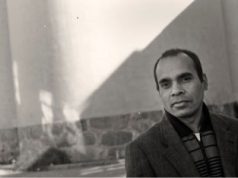 By Ghulam Muhammed Quader
By Ghulam Muhammed Quader
The country stands at the edge of collapse. Bangladesh is reeling under a combination of worsening unemployment, an escalating law-and-order crisis, rampant inflation, and a paralysis in governance. Since the installation of the interim government under Muhammad Yunus, uncertainty and unrest have dominated daily life.
Bangladesh faces its deepest economic and social crisis in decades. The country’s GDP growth, which was above 6% in 2023, has plummeted to between 2.3% and 4% in 2025, with key international agencies and local analysts projecting sustained stagnation or further decline if political instability persists. Inflation remains above 10%, with food inflation even higher, eroding purchasing power and driving up the cost of daily necessities for ordinary citizens. The Bangladeshi taka has depreciated sharply, and public debt has soared, as the IMF and international lenders have imposed new limits on further borrowing.
Factories and businesses across the country are shuttering. Over 150,000 garment workers have lost their jobs since mid-2024—the worst reversal for Bangladesh’s exports in years—with many other small and medium businesses facing closure or stagnation. A freeze on domestic and foreign investment and the repatriation of development funds have left new graduates with nowhere to go. Youth unemployment among graduates is reported at over 30%, double what it was two years ago. The threat now is mass poverty and a dangerous brain drain, as skilled citizens look abroad for opportunities.
Law and order continue to deteriorate. Murders, mob violence, and arbitrary detentions have surged. Law enforcement agencies are demoralised, unsure of their mandate, and accused of both excessive force and ineffectiveness. The result has been a climate of fear, eroded judicial credibility, and recurring violence on the streets—especially as the political standoff deepens.
Meanwhile, commodity prices climb relentlessly. General inflation is above 10%, with food inflation reaching 16% in recent months. Farmers are forced to sell at rock-bottom prices, while consumers pay heavily in city markets due to unchecked middlemen and the inability of authorities to control extortion and illegal tolls along the supply chain. Hunger and undernourishment are quietly on the rise—so much so that famine warnings are regularly sounded by opposition politicians and civil society organisations.
The July 2024 employment quota protests marked a turning point. What began as a student call for reform rapidly grew into a mass anti-discrimination movement, drawing support from nearly all segments of society and major parties, including the Jatiyo Party. The agitation culminated in the ousting of the Awami League government on 5 August 2024, and the formation of an interim regime.
However, the new government soon handed power to the leadership of student activists. These figures gained unprecedented authority, entering the cabinet or controlling ministries, while sidelining their early political allies, including Jatiyo Party. By October 2024, senior student leaders—now part of the ruling structure—publicly declared the Jatiyo Party an “accomplice” of the previous regime, banishing it from political activity. Protests and basic organisational rights have been systematically denied, and the exclusion has extended to other former partners as well.
Disclosures by movement participants have revealed that parts of the uprising were neither nonviolent nor unaided by outside groups. The presence of Jamaat-e-Islami and its student wing, Chhatra Shibir, has been openly acknowledged, with senior Jamaat-e-Islami figures stating they played a “fundamental role” in planning and sustaining the July events.
The aftermath has seen the movement’s core ideologies shift. Instead of aiming only for free elections and anti-discrimination, some leaders now champion a radical overhaul of the state, echoing communal rhetoric reminiscent of pre-1971 Pakistan. Speculation mounts that they see Bangladesh’s liberation as a mistake and its founding as a conspiracy—a line mirrored by fringe narratives.
In May 2025, the Awami League was formally barred from activity. Now, proposals circulate among ruling circles to ban groups like the Jatiyo Party and the long-standing 14-party coalition, leaving power concentrated within government-approved factions—effectively replicating the authoritarianism previously condemned.
If the national elections scheduled for February proceed under these rules, observers warn of unrest before, during, and after the polls. The exclusionary system being constructed threatens further violence and instability, driving Bangladesh closer to disaster with every passing month.
Bangladesh’s only chance at recovery is genuine political stability. That requires a neutral caretaker government and a credible, participatory election involving all major parties. Further delay will only deepen the country’s unprecedented economic and social crisis. The time for truly inclusive, free, and fair elections is now.
(Ghulam Muhammed Quader, Chairman, Jatiyo Party, is former Minister of Civil Aviation and Tourism – 2009-2011; and former Minister of Commerce – 2011 – 2014, Bangladesh.)





